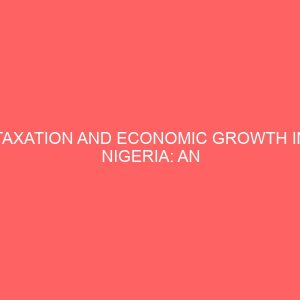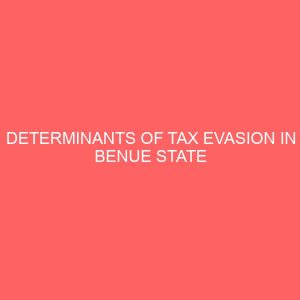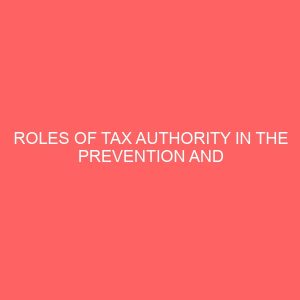Description
Abstract
This study is primarily concerned with finding out the impact of Education Tax Fund (ETF) in tertiary institutions in Nigeria. In the course of this study, three research questions were mapped out to guide the researchers and related works of literature were also reviewed in this study. The research design was descriptive survey method and the population comprised of all the students, lecturers and management of staff of Alvan Ikoku Federal College of Education Owerri, Imo State. The sampling techniques used were simple size of 200 and purposive sampling techniques for lecturers and management staff with a sample size of 10. the data generally were analyzed with simple percentage and the result showed that education Tax Fund has not really impacted much on our Tertiary institutions as they still have a lot of work to do on meeting its statutory obligations, sound internal control system and consideration of students opinion before approving any school project. Based on the findings, the following recommendations were made, that the sharing ratio of fundS by education Tax Fund (ETF) should be according to the number of students admitted per session and the accounts of education Tax Fund (ETF) should be Audited twice a year, independent corrupt practices commission (ICPC) should always investigate corrupt activities in Education Tax Fund (ETF), and Accounts of Stewardship of members of the board of trustees should be presented to the floor of National Assembly once a year. Finally, there should be a penalty for companies that fail to pay the two percent (2%) Education tax.








Reviews
There are no reviews yet.